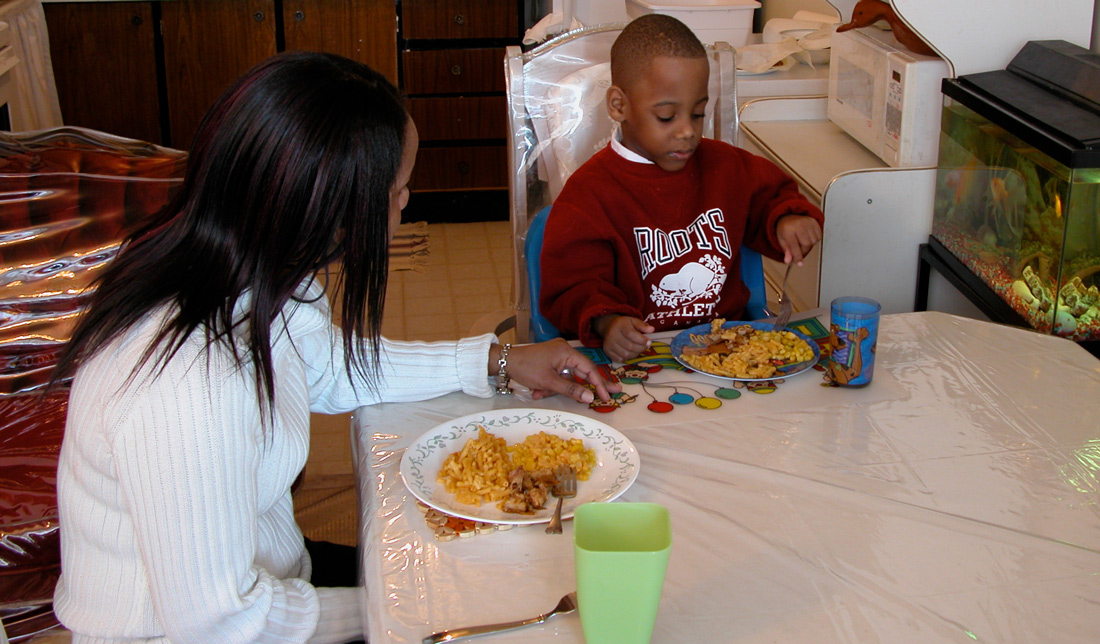
Develop a mealtime routine
Schedule 3 meals daily and have 2-3 snack breaks. Give your child a 10-15 minute warning that mealtime is approaching. Include your child in the mealtime routine by asking them to set the table and wash their hands.
Involve them in meal preparation
Allow your child to help make decisions about the meal. Bring them along to the grocery shop and let them help prepare the meal.
Be a role model
Children learn through observation. Set an example by eating new, healthy foods yourself!
Honour their choices
Respect that your child can choose what they want to eat and how much they want to eat. Do not force your child to eat. Think about providing your child with different food options.
Make it a positive experience
Try and eat together as a family when possible. Keep mealtimes fun and relaxed by limiting strict rules and embracing that learning can be messy.
Avoid distractions
Try to remove distractions such as TV, tablet or toys during mealtime.
Limit drinks close to mealtime
Too many drinks can reduce your child’s appetite. Wait until after the meals to serve milk or juice.
Allow them to play
Let your child interact with their food by smelling, touching or playing with it. Try cutting food into shapes or make designs to make food more appealing and fun.
Remember to be patient, stay positive and make it fun!
Sources
Canadian Pediatric Society (2019). Caring for Kids: When your child is a picky eater. https://www.caringforkids.cps.ca/handouts/when_your_child_is_a_picky_eater
City of Toronto (n.d.) Picky Eating. https://www.toronto.ca/community-people/childrenparenting/pregnancy-and-parenting/parenting/feeding-your-child/feeding-yourtoddlerpreschooler/picky-eating/
Community Living Toronto (n.d.) Children with ASD who are picky eaters.
Schwarz, J., (n.d.) Picking apart picky eating. http://www.boomeranghealth.com/picking-apart-picky-eating/
